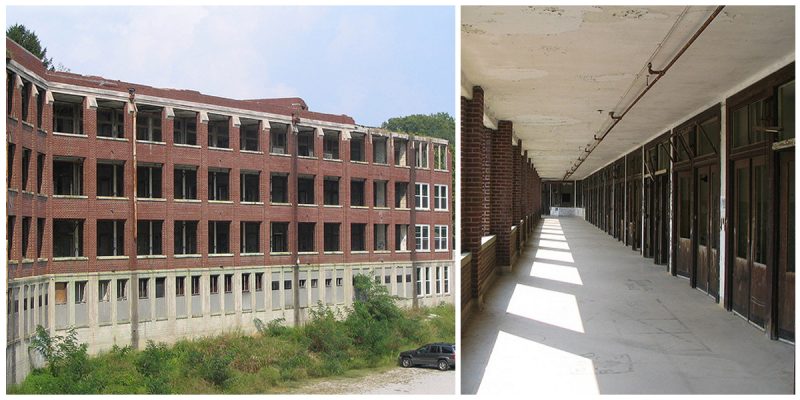During the 1800s and early 1900s, America was ravaged by a terrifying and very contagious plague known by many as the “white death” -tuberculosis. In 1900, Louisville, Kentucky had one of the highest tuberculosis death rates in America.
To try to contain the disease, in 1910 a two-story wooden sanatorium was opened which consisted of an administrative/main building and two open-air pavilions, each housing 20 patients, for the treatment of “early cases”. The hospital quickly became overcrowded though and with donations of money and land, a new hospital was started in 1924.
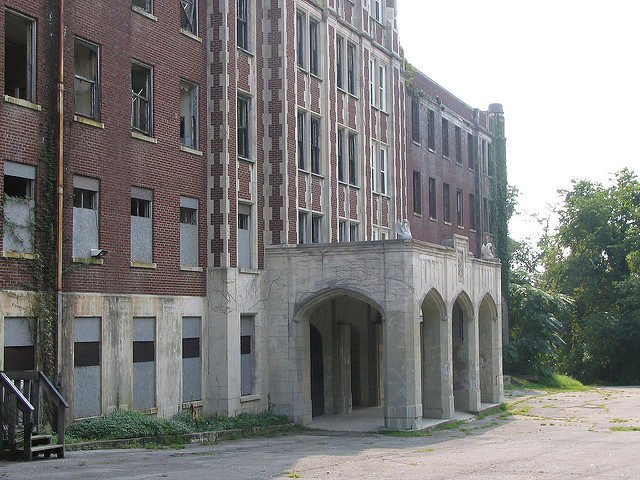
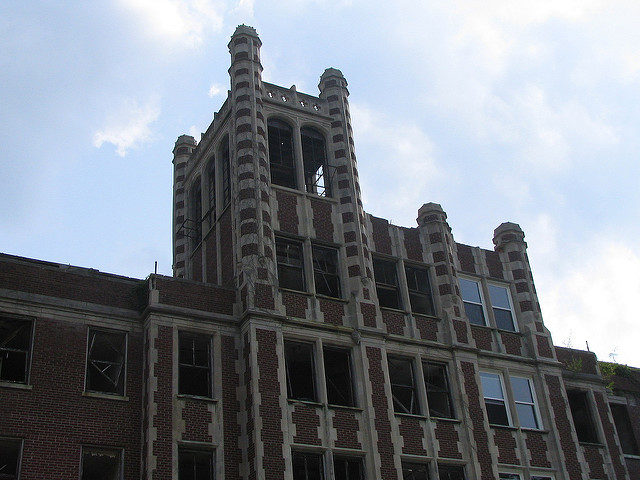
The new structure, known as Waverly Hills, located in southwestern Louisville/Jefferson County, Kentucky opened two years later in 1926, and it was considered one of the most modern in its day. When the building was in operation, there was such a tremendous amount of deaths in patients that occurred at the Waverly Hills Sanitorium that a special chute was built which led to the bottom of the hill down below the sanitorium. One of the names this chute was commonly known by was “the death tunnel”.
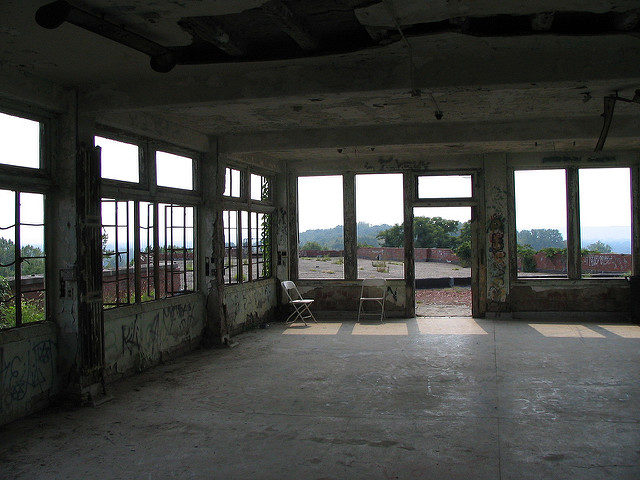
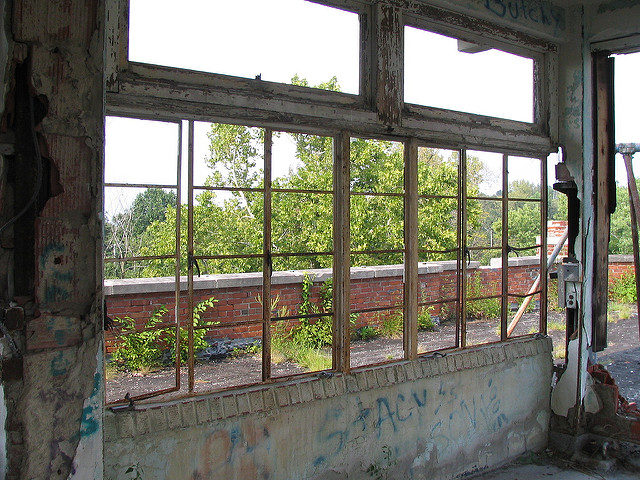
The tunnel (also known as “the body chute”) was constructed at the same time as the main building beginning on the first floor and traveling 500 feet (150 m) to the bottom of the hill. One side had steps to allow workers to enter and exit the hospital without having to walk a dangerous, steep hill. The other side had a set of rails and a cart powered by a motorized cable system so that supplies could easily be transported to the top.
Air ducts leading from the roof of the tunnel to above ground level were incorporated every hundred feet to let in light and fresh air. The tunnel was also used to remove patients to the waiting hearses at the bottom of the hill and out of sight of living patients. The tunnel is supposed to be haunted by those who made their last journey through it.
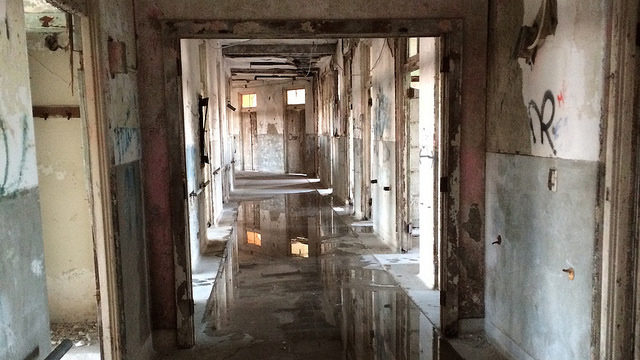
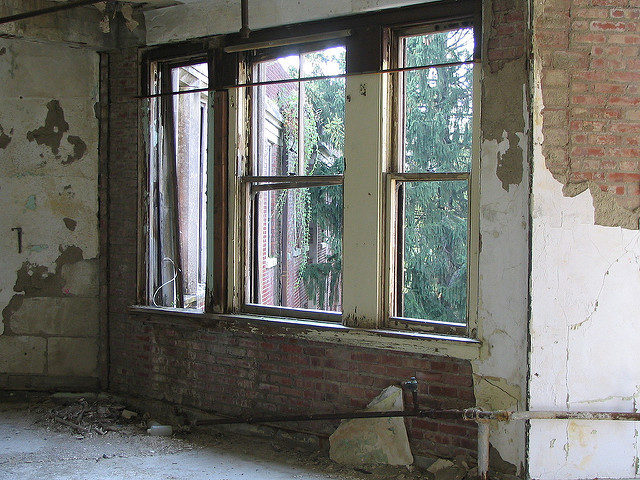
The hospital closed in 1961, due to the development of the antibiotic drug “streptomycin” lowered the need for such a hospital. Some urban legends claim that over nine thousand deaths occurred at the Sanatorium. According to Assistant Medical Director Dr. J. Frank W. Stewart, the highest number of deaths in a single year at Waverly Hills was 152.
Stewart wrote that the worst time for deaths was at the end of the Second World War when troops were returning from overseas with very advanced tuberculosis cases. Some independent researchers suggest that since 162 people died at Waverly Hills in 1945, the highest total number of deaths possible over 50 years was approximately 8,212.
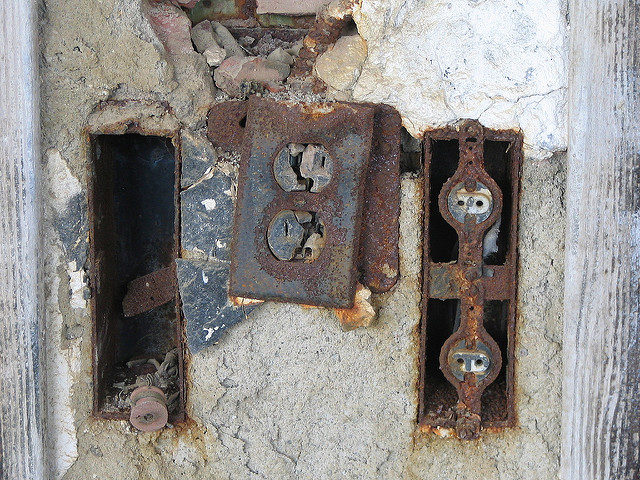
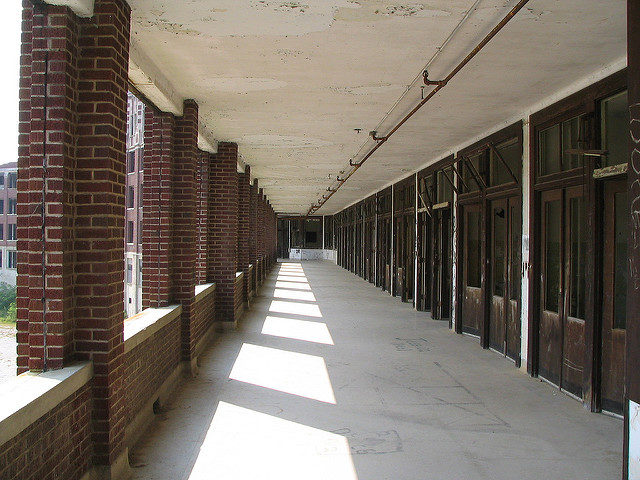
An episode of the Sci-Fi Channel television show Ghost Hunters featured the cast’s investigation of Waverly Hills, including a local myth about the death of a nurse by murder or suicide in Room 502. Legend says the nurse found out she was pregnant by the owner of the sanatorium without being married and had contracted tuberculosis, so she hanged herself with a light bulb wire outside the room she was in at the time.
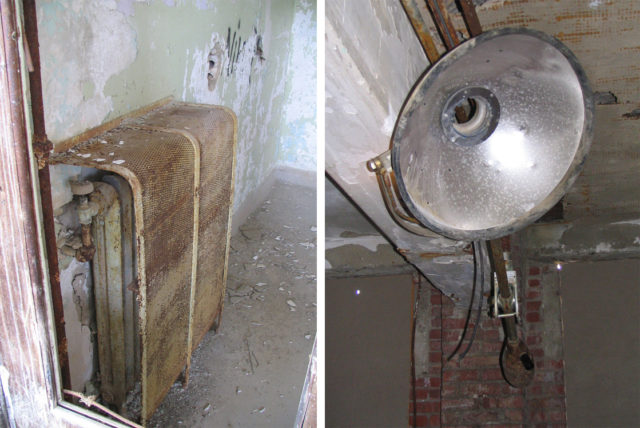
Waverly Hills Sanatorium has been a TB hospital, a nursing home, a failed religious monument, and now a paranormal investigation site. The halls of the Waverly Hills Sanitorium have seen thousands upon thousands of tourists and visitors from all around the world.
